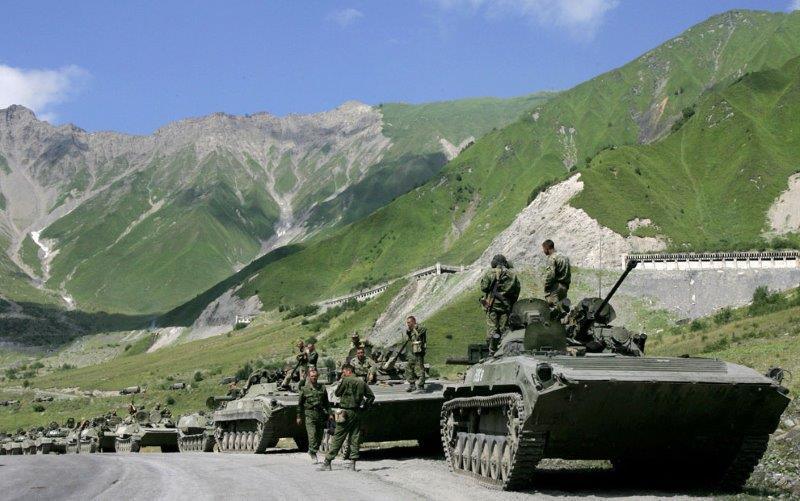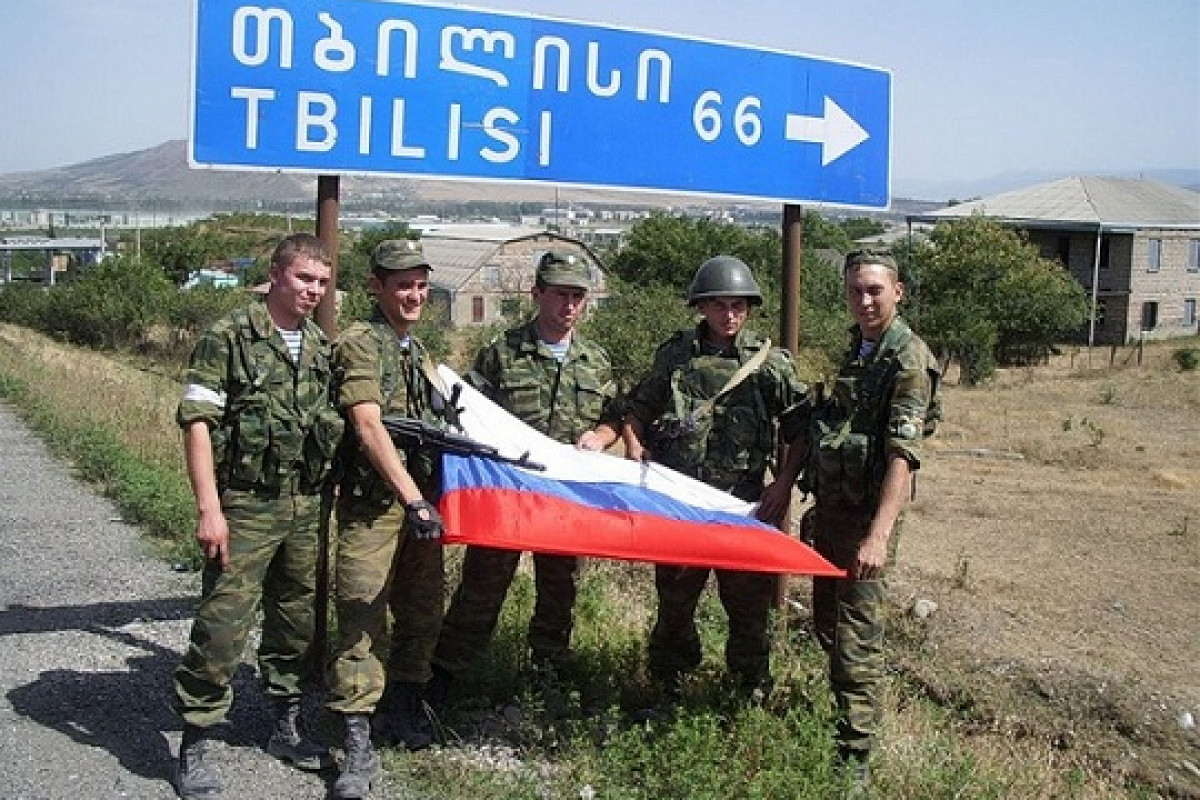Moscow’s propaganda campaign against Ukraine and its dislocation of troops near the Ukrainian border echo the propaganda it deployed against the Republic of Georgia and the troops it moved up to the Georgian border before invading that country in 2008, Vitaly Portnikov says.

Because Moscow invaded Ukraine seven years ago in a hybrid fashion, the Ukrainian analyst says, most people are comparing what happened in advance of Moscow’s moves then with what it is doing now. But a far more instructive comparison is provided by what Moscow did in Georgia in 2008.
and his representatives constantly accuse Ukraine of being aggressive and unpredictable and of preparing to invade the Donbas. Viewed from Kyiv, these claims look like Russian paranoia. Not only have Ukrainian leaders denied what Moscow is accusing them of, but Ukraine has not made any preparations, unlike Russia which has beefed up its forces.
In reality, Portnikov continues, what Moscow is showing is not paranoia but cold calculation. It is behaving exactly as it did before the start of the Russian-Georgian war in 2008. Then, South Ossetia shelled Georgian territory and Russian “peacekeepers” did nothing to stop it. Instead, Moscow blamed Tbilisi for causing the problem – exactly as Moscow is doing now in Ukraine.
Western leaders had been “psychologically prepared” by the Kremlin’s attacks on the Georgian leadership.

Repeating the same approach in Ukraine gives Moscow three advantages:
- It allows the Russian government to block negotiations and blame that action on Kyiv.
- It destabilizes conditions in Ukraine.
- And “in the event of the start of a real war, it can always explain that by the aggressive actions of Ukraine, about which the Kremlin had warned.”
To be sure, few believe what the Kremlin is saying. But even Western recognition of the possibility of a new war opens the way for something else the Kremlin wants: Western efforts to negotiate with Putin directly. “They will demand from him that he remove his forces, and he will demand from them that they make Zelenskyy
‘reasonable.’”
“And then if a war starts,” Portnikov concludes, “the Kremlin will blame the West” for encouraging Ukraine in its aggressiveness toward Russia and failing to pay attention to Russian warnings, again just as happened in Georgia in 2008.
Read More:
- Transfer of Russian military units towards Ukraine’s border to be finished by end of April, – Ukrainian Intel
- Donbas: Russia creating fakes on the ground
- Tensions escalate in Donbas and on Ukrainian border
- Invading Ukraine now could spark protests that would threaten Putin regime, Russian commentator says
- Russia’s triple strategy of proxy war used against Georgia in 1920 and now
- Disinformation build-up: pro-Kremlin media reinvigorate their focus on Ukraine
- Four Ukrainian soldiers killed in Donbas as Russia continues troop buildup and escalates propaganda
- War scare is Putin’s natural element
- Amidst Russia’s loud sabre-rattling, US delivers military hardware to Ukraine
- Ukraine’s Territorial Defense volunteers prepare to support army in case of Russian invasion
- Moscow will be ready for a war against Ukraine ‘in a month,’ Felgenhauer says

